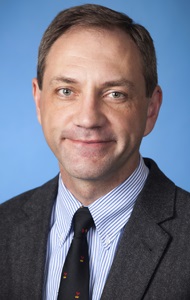POSTPONED UNTIL THE NEW YEAR Conversation with Dr. Gordon Ramsey and Eustacia Cutler: “Symbolic processing, echolalia and speech deficits in autism” These two researchers will discuss symbolic processing and many other fascinating issues that also weigh heavily on the acquisition of spoken language. The results of ongoing research on babies indicate that there are many potential mechanisms that lead our children with autism off the path to speech. Dr. Ramsey’s focus of interest right now is the role that social contingency – the exquisite timing and synchrony of conversational interactions that emerges between parent and child – may play in
weaving all this together, from the moment of birth right through all of these stages of communicative development.
Dr. Ramsey Assistant Professor Department of Pediatrics, Emory University School of Medicine Core Faculty, Center for Translational Social Neuroscience, Emory University. He completed his Ph.D. in electronics and electrical engineering at the University of Southampton in England and received an M.Phil. from Cambridge University in speech and language processing after undergraduate studies in engineering. He was a Marie Curie Research Fellow at the Institut de la Communication Parlae in Grenoble, France for two years, and also worked at the University of Waterloo, Canada and the Universita Libre de Bruxelles, Belgium. He has held visiting positions at the University of Western Sydney, Australia and Addis Ababa University, Ethiopia. Before coming to Emory and Marcus Autism Center, he was an Associate Research Scientist in the autism program led by Ami Klin, Ph.D., at the Yale Child Study Center, a Fellow of Saybrook College at Yale University, and Senior Scientist at Haskins Laboratories. At Marcus Autism Center, he directs the Spoken Communication Laboratory. He is also Principal Investigator for Project 2, funded by the National Institutes of Health (NIH) Autism Center of Excellence grant, and Director of the Data Analysis & Management Core on the NIH Autism Center of Excellence. His research focuses on mathematical models of speech production and perception, which he is currently applying to developmental profiling of vocal behavior, spoken communication, and social interaction in infants at risk of autism.
